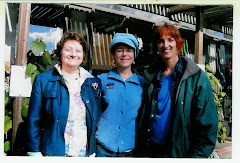
Shalom friends,
In 70 CE the second temple of Jerusalem was destroyed and the Jewish population was scattered in the Diaspora. 1878 years later, on the 5th of the Jewish lunar month Iyar, the State of Israel was declared by David Ben-Gurion.
Immediately after the declaration of the state of Israel, the War of Independence broke out with the young state fighting against the Arab nations’ attacks. This pendulum of joy and fear, peace and war, has become a significant part of Israel’s existence. Symbolically, we honor the fallen soldiers and victims of terroris
 m on the day preceding the celebration of Independence Day.
m on the day preceding the celebration of Independence Day.The state of Israel became a melting pot of Jews who came from all over the world. The young state has made a difference in the lives of many people in Israel and in the Diaspora. The people of the young state made a difference in every possible area: science, music, agriculture, nature perseverance and tourism, to name a few.
This year, Israel celebrates sixty - a young state with a rich history and many accomplishments.
Yom Atsma'ut Same'ax!
Happy Independence Day!
WEEKLY HEBREW WORD
| Transcription: Atsma'ut. |
| Part of speech: Noun, Feminine. |
| Literal Meaning: Independence. |
| Transcription: Degel. |
| Part of speech: Noun, Masculine. |
| Meaning: Flag. |
| Transcription: Shishim. |
| Meaning: Sixty. |
WEEKLY HEBREW DECLARATION

| Transcription: | David Ben Gurion: "al yesod haxlatat atseret ha'umot ha'me'uxadot, anu maxrizim bazot al hakamat medina yehudit be'erets Israel, hi medinat Israel!" |
| Literal Translation: | David Ben Gurion: "On the basis of the decision of the United Nation Assembly, we hereby declare the establishment of a Jewish state in the Land of Israel, which is The State of Israel." |
| Context: | The partition plan to divide Palestine between Jews and Arabs was put to a vote in the United Nations on 29 November 1947. The result was 33 in favor of the plan, 13 against, and 10 abstentions. The division was to take effect on the date of British withdrawal from the territory (15 May 1948). Eight hours before the end of the British Mandate over Palestine, David Ben-Gurion read the Declaration of Independence and proclaimed the State of Israel. The joy and festivals of the establishment of Israel quickly turned into bitter defensive war against seven Arab armies that attacked the new state. |
Watch a Video of David Ben Gurion announcing Israel's Independence. 1948
WEEKLY HEBREW SONG

| The Israeli National Anthem |
| The Hope |
| Literal Meaning | Transcription | The Song |
| As long as in the heart, within, A soul of a Jew is yearning, And to the edges of the East, forward, An eye gazes towards Zion. | Kol od baleivav p'nimah Nefesh y'hudi homiyah Ulfa'atei mizrach kadimah Ayin l'tziyon tzofiyah. |  |
| Our hope is not yet lost, The hope of two thousand years, To be a free nation in our land, The land of Zion and Jerusalem. | Od lo avdah tikvateinu Hatikvah bat sh'not alpayim Lihyot am chofshi b'artzeinu, Eretz tziyon viyrushalayim. |  |
Click to hear Hatikva - The National Anthem of Israel
WEEKLY HEBREW NAMES
| |||||||||||||||||||||||
| |||||||||||||||||||||||





No comments:
Post a Comment